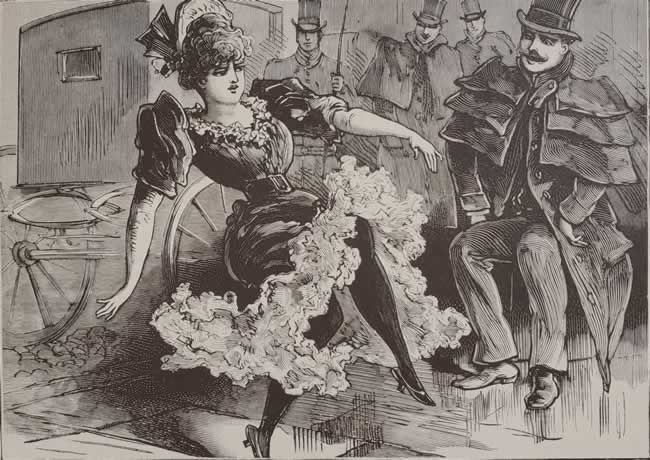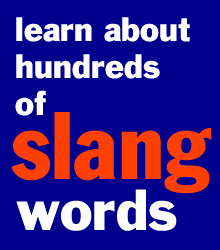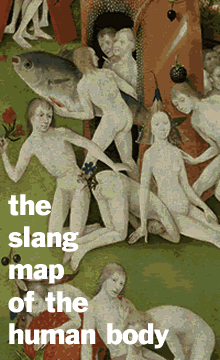fairy
 Image credit: "She did the naughty midway dance" from the Police Gazette, 1893
Image credit: "She did the naughty midway dance" from the Police Gazette, 1893
Definition: (noun) 1. a homosexual man (derogatory) 2. a prostitute (regional & archaic)
Example: Prospector Pete brought a handful of gold nuggets to the dance hall with him, hoping he’d find a fairy to spend it on.
Quote:
“Corinne B. Gray, the frolicsome fairy who defrauded Uncle Hoffman of $90 and then took passage on the Sybil for the Outside, has been intercepted by the police at Taglish.”
Despite the equalizing force of television, movies and the internet, there are still pockets of slang specific to regions and in-groups, and you can find these on personal web pages and local online dictionaries. In the past, however, when people were more isolated, many words that came into fashion in remote areas sputtered out and died without ever being recognized in greater society. I suspect this is the case with this use of the word fairy.
Though it was employed extensively by Yukon Territory newspaper reporters as a euphemism for prostitute in the late nineteenth century, I was unable to find it in any slang dictionaries, which would indicate that it never gained a footing outside of the region.
That Gold Rush started in 1897; the first recorded usage of the far more common derogatory meaning—a homosexual man—was in 1895. (Fairy ladies, meaning lesbians, would not appear for another fifty years and would never gain the popularity of its male counterpart.) It’s unclear whether the two meanings of the word developed independently, but I can’t help but make a connection to another fairy reference in the song “Darling Clementine.”
Fairy was slang for a young woman in the nineteenth century, but in that popular tune, written shortly before the Yukon Gold Rush, it is used ironically in its standard form. Darling Clementine recounts the story of the daughter of a 49er (miner in the 1849 California Gold Rush). Clementine, described as “like a fairy,” tripped into the river and drowned, presumably because her feet were too big (they are described as size nine, necessitating herring boxes as shoes). Her lover, while claiming to be heartbroken, immediately forgets her and falls in love with her younger sister. No doubt the beauties of the frozen north were wearing something more attractive than shoes made from fish containers; the language used in those Klondike newspaper stories indicates that those ladies of easy virtue were dainty and delicate creatures.



